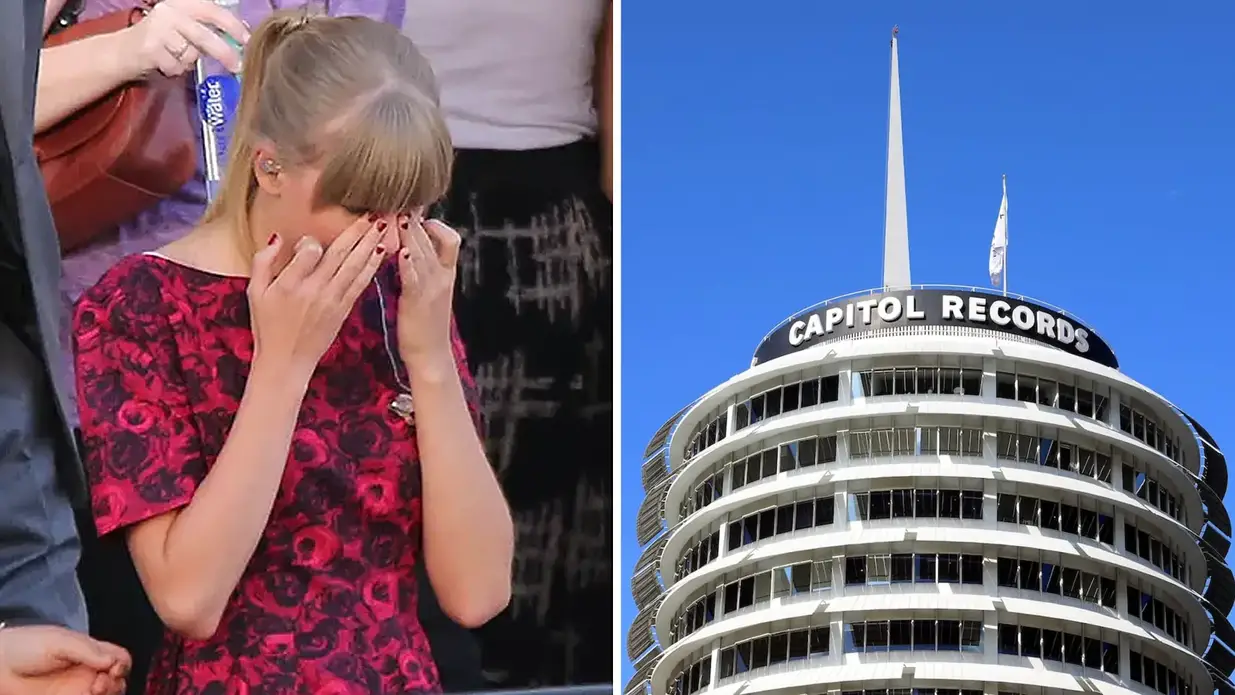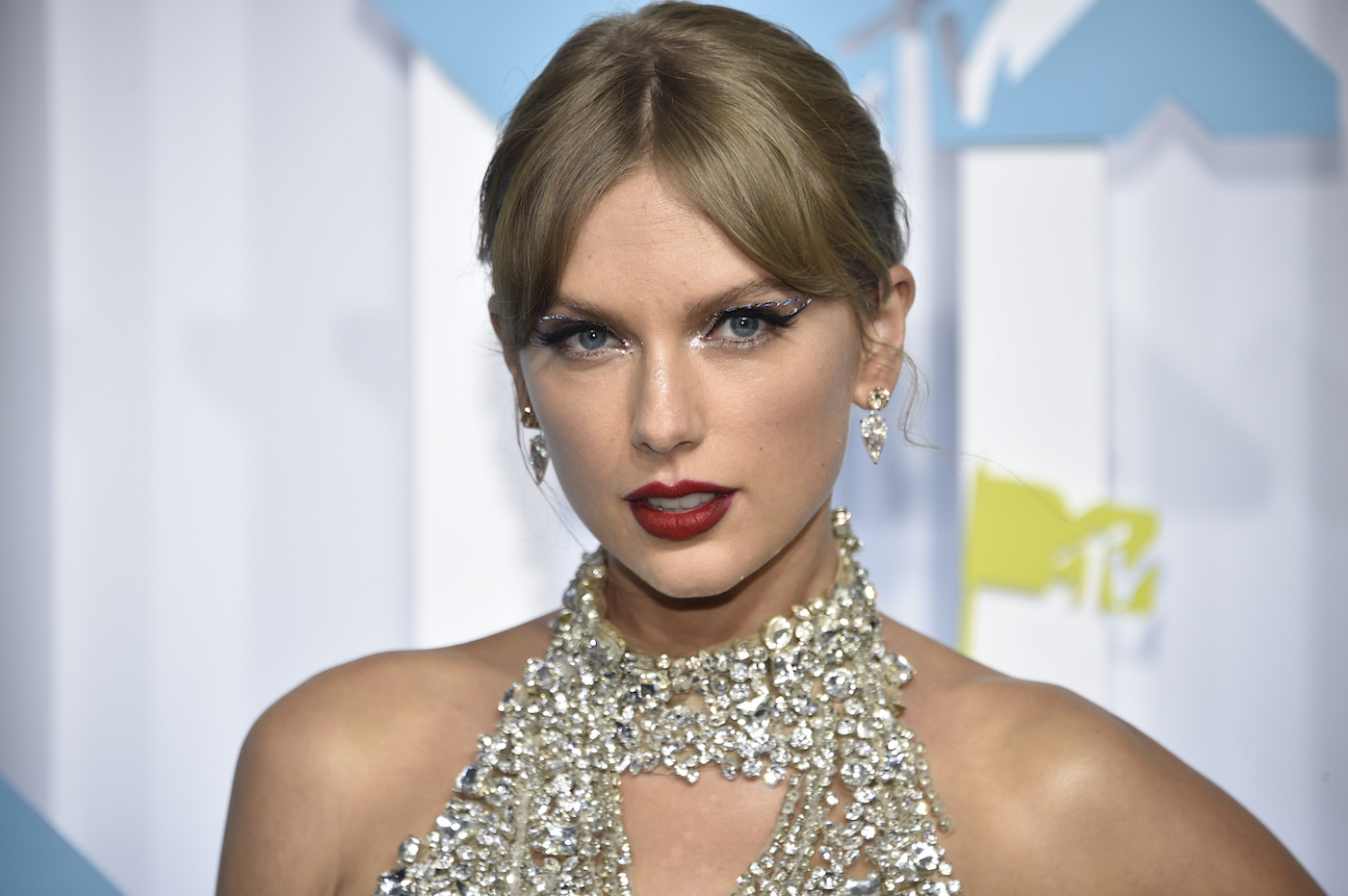Taylor Swift, one of the most successful pop icons in the world, has long been known for her chart-topping albums and devoted fan base. Recently, however, Swift has found herself at the center of a controversy that could significantly impact her career. Following her public endorsement of U.S. Senator Kamala Harris, several major record labels are reportedly considering dropping her from their rosters, citing concerns over the politicization of her music career. The labels argue that they “didn’t sign up for politics” and are wary of the potential backlash from fans and industry insiders alike.

This development has sparked a larger conversation about the role of politics in the music industry, raising questions about whether artists should use their platforms for political advocacy and the potential consequences of doing so.
Taylor Swift’s Political Endorsement
Taylor Swift has historically been cautious about sharing her political views. For years, she was famously quiet on political matters, choosing to keep her opinions private. However, in recent years, Swift has become more vocal about her stance on issues such as LGBTQ+ rights, racial justice, and women’s rights. Her endorsement of Kamala Harris marks one of her most high-profile political statements to date.
Swift expressed her support for Harris through social media, describing the senator as a champion for equality, human rights, and social progress. She urged her fans to get involved in the political process and to vote for candidates who represent their values. Her post received millions of likes and shares, but it also triggered an immediate backlash from fans who believe that politics should stay separate from entertainment.
The Record Labels’ Dilemma
While Taylor Swift’s political activism may have resonated with some of her fans, it has caused significant concern among the record labels that have invested heavily in her career. According to industry insiders, several major record labels are now contemplating whether they should continue to work with Swift after her public endorsement of Harris. The primary concern is that Swift’s political stance could alienate a significant portion of her fan base and create division within the industry.
One source close to the matter explained, “Record labels are in the business of selling music, not politics. Taylor Swift’s involvement in political advocacy may jeopardize her commercial appeal, especially if her views clash with those of her fans.” The source added that while labels respect artists’ right to free speech, they are ultimately accountable to shareholders and must consider the bottom line.
The argument from the labels is that they signed Swift to produce music that appeals to a broad audience, not to make political statements that could polarize fans. This is particularly concerning for labels that rely on Swift’s massive following to generate revenue through album sales, streaming, and concert tickets. With Swift’s endorsement of Harris potentially alienating some fans, labels fear that her marketability could suffer.
The Risk of Alienating Fans
The music industry has seen a growing trend of artists becoming more vocal about their political beliefs, but this has not always been met with universal support. While some fans appreciate when artists use their platforms to speak out on important social issues, others believe that politics should be kept separate from entertainment. In the case of Taylor Swift, many of her fans have expressed disappointment in her decision to endorse a political figure.
Some fans took to social media to voice their frustration, with comments such as, “I just want to listen to your music, not be told who to vote for,” and “I’ve been a fan for years, but I don’t agree with her political views. This is a step too far.” This backlash could lead to decreased sales and concert attendance, both of which are significant factors for record labels when deciding whether to continue supporting an artist.
For Taylor Swift, the decision to endorse Harris may have seemed like a natural extension of her advocacy for progressive causes, but it has created a complex situation for her team and the record labels backing her. The potential loss of fans, especially in conservative-leaning areas of the U.S., could have lasting repercussions on her career.

The Political Climate and the Music Industry
The music industry, like many other industries, has become increasingly intertwined with politics in recent years. From award shows to music videos, political statements are becoming more prevalent as artists use their platforms to highlight social justice issues and encourage activism. However, this intersection between politics and entertainment is not without controversy.
Some industry experts believe that artists who align themselves with political causes run the risk of alienating portions of their fan base, especially in a polarized political climate. This is particularly true for global superstars like Taylor Swift, whose fan base spans across diverse political and cultural backgrounds.
“Fans come to music for escapism, not for political debate,” one industry executive said. “When artists start advocating for political candidates, they risk turning off fans who may not share the same views. It’s a delicate balance between staying true to your beliefs and maintaining your commercial appeal.”
This tension between political advocacy and commercial success is not unique to Taylor Swift. Artists such as Kanye West, Bruce Springsteen, and Beyonce have all faced criticism for their political views, and in some cases, it has impacted their relationships with record labels and corporate sponsors.
A Tough Decision for Labels
Record labels now face a difficult decision: should they continue to support an artist who is willing to engage in political discourse, even if it means alienating some fans, or should they distance themselves to protect their business interests? For many labels, the answer will likely depend on how Swift’s endorsement of Harris affects her sales and fan engagement in the coming months.
One potential outcome is that record labels may take a more hands-off approach, allowing artists to express their political views but distancing themselves from any controversy that arises. This could mean less promotional support for politically active artists or fewer resources allocated to their projects.
On the other hand, some labels may decide that the risks are too high and opt to drop artists who engage in polarizing political advocacy altogether. This could set a precedent for other artists, creating a chilling effect where musicians feel pressured to stay silent on political matters to avoid losing label support.
Conclusion
Taylor Swift’s endorsement of Kamala Harris has sparked a significant controversy within the music industry, with major record labels reportedly considering dropping her from their rosters. The labels argue that they signed Swift to make music, not political statements, and are concerned that her political activism could alienate fans and hurt her commercial appeal.
This situation highlights the delicate balance between political advocacy and commercial success in the music industry. While some fans may appreciate Swift’s willingness to speak out on important issues, others believe that politics should be kept separate from entertainment. The ultimate decision by the record labels will likely depend on how this controversy impacts Swift’s sales and fan engagement in the coming months, but it is clear that the intersection of politics and music will continue to be a contentious issue moving forward.
Leave a Reply